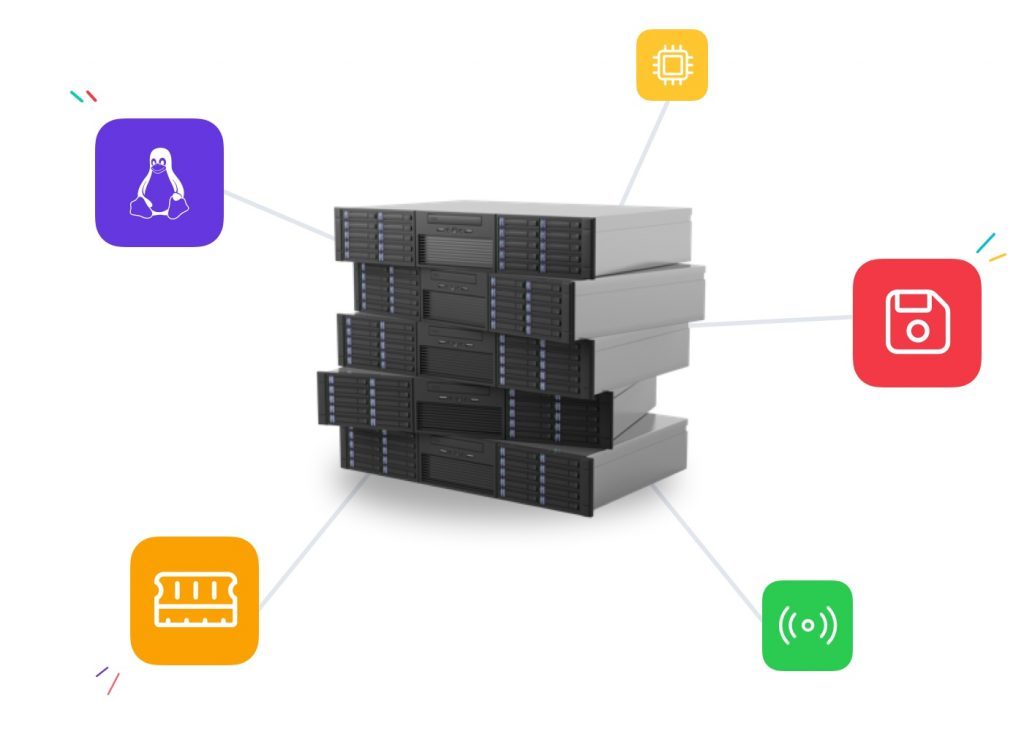What is VPS hosting?

Have you outgrown traditional (shared) hosting for your project? But are you concerned about the costs of cloud hosting? Then VPS hosting is the compromise you've been looking for. We'll explain why a VPS server is such a practical hosting solution.
What's VPS?
VPS stands for Virtual Private Server. The name immediately highlights the major benefit of this type of server: renting a virtual private space on the physical server of a hosting provider.
Virtually, you have a separate private server with its own operating system, while physically, your VPS is located on a shared server used by other customers for their virtual private servers.
More affordable than cloud hosting
A so-called virtual server can be a suitable solution for (new) entrepreneurs who see their business growing, but consequently encounter the limitations of their shared web hosting solution.
Shared web hosting is an excellent entry-level option since it involves sharing both server space and the associated costs. In 90% of cases, this arrangement is more than sufficient. However, if you need more resources and flexibility, or if you want to use specific software, this type of hosting can be too restrictive.

When that moment arrives, you might consider switching to a dedicated cloud server. However, if that's still too costly for you, a Virtual Private Server (VPS) is the ideal solution. The costs are slightly higher than shared web hosting but less than cloud hosting.
Choosing a VPS means you still share one physical server with other clients, but because the server is divided into several virtual servers, you won't be affected by your 'neighbors'. 😉 VPS is therefore handy if you need more scalability and performance but want to work cost-efficiently.
When to consider VPS hosting:
When you might not need VPS hosting:

Characteristics of a virtual private server
Regardless of what other applications are doing on the physical server, your VPS remains unaffected. With your virtual server, you have an isolated environment with its own operating system, server resources, and configuration options.
You enjoy optimal performance and security. Additionally, you are guaranteed uptime and a higher level of reliability.
With VPS hosting, you are guaranteed server resources such as RAM, CPU, and storage capacity. These resources are specifically allocated per VPS. Thus, you have more control and expansion possibilities.
VPS hosting is a scalable hosting solution. This means you can easily scale server resources up or down among various plans and packages. This is very important if your organization is experiencing rapid growth or expects to in the future.
Thanks to root access, you have full control over your operating system and the software configuration of your server from a distance. Here at Combell, we offer you a Plesk control panel, while the operating system runs on Ubuntu.
Plesk makes managing your VPS easier. In just a few clicks, you can launch a new website, create a mailbox, or add a database.

Unmanaged VPS Hosting and Managed VPS Hosting
Another characteristic of virtual servers is that they can be either unmanaged or managed. What does this mean? With Managed VPS, updates, monitoring, and all maintenance are performed by your provider, while with Unmanaged VPS, you must handle all these tasks yourself.
Although we offer solutions for Unmanaged VPS (OpenStack) at Combell, we are fully convinced of the benefits of Managed VPS. Managing servers takes a lot of time, money, and technical knowledge.
Can you wear different hats? Do you have time to maintain your webshop as well as your VPS? The likelihood that your answer is "no" is real. Therefore, consistently opt for Managed VPS hosting and push all those responsibilities and cumbersome tasks onto your provider.
New versions, patches, security updates for your operating system, and Plesk as a control panel... Combell installs all these for you, without any downtime. 😄
Advantages of VPS
Components of a virtual server
Before you can understand how a virtual server operates, it’s important to know its various components, which include:
- Disk space
- RAM (Random Access Memory)
- Processor
- Data traffic
- Operating system
What is a VPS without disk space? Nothing! That's precisely where the content of your application is stored. RAM (Random Access Memory) is the working memory. These resources determine how much data you can keep in the working memory. The more RAM you have, the more capacity you have to run various server processes simultaneously.
CPU (Central Processing Unit) represents the processor. The CPU ensures that various functions can be performed on the server. The more processors, the better the performance of your website, which is crucial if you expect a lot of internet traffic.
The number of visitors is related to your data traffic. This is the data sent to and from your VPS. The size of your site, the files (photos, videos, etc.), and the number of visitors you attract have the largest impact on the amount of data you process.
You use and manage your server with an operating system. There are various tools available, and through Combell, you use Ubuntu as the operating system.
How a Virtual Private Server works
A virtual server is essentially a software-based copy of a physical server. Instead of using a physical computer, a virtual server utilizes the resources of a physical server to create multiple virtual servers.
Each virtual server is continuously online and has its own operating system, applications, and data.
The files and data of your website(s) are stored on this server. Suppose a visitor, let's call her Manon, wants to visit your website. Manon's browser sends a request to your VPS, which then transmits the necessary data allowing Manon to access your website.
Virtual servers are created using virtualization technology, which splits the physical server into multiple virtual environments. Each virtual server has its own processor, memory, storage, network connections, and other resources required to operate.
Also read
VPS with resilience
This setup allows multiple virtual servers to be hosted on the same physical server, reducing costs and improving efficiency.
Virtual servers offer flexibility, scalability, and resilience. They can be quickly configured, copied, moved, and removed, depending on the needs of your organization.
Virtual servers are quite popular as a hosting solution and are frequently used for web hosting, application hosting, databases, and more. They are also easier to manage and upgrade than physical servers.

VPS compared to other hosting options
It's a good idea to thoroughly compare VPS hosting with other hosting options. You'll find there are significant differences in terms of environment, control, security, and performance.
- Entry-Level Web Hosting
This is the most common hosting solution. Many use it to take their first steps on the internet with their own website. Web hosting is budget-friendly because you share resources with other users.
Additionally, everything is managed via the control panel of your own host. This type of hosting is the ideal match for small to medium-sized websites or webshops. 90% of all websites use this type of hosting!
- Dedicated Web Hosting
This hosting solution is an extension of entry-level web hosting. Unlike shared web hosting where you share resources, this type of hosting assigns you the resources of an entire server while still maintaining the ease of use of entry-level hosting.
You continue to use the familiar control panel provided by your host. A website with a lot of visitors and peak traffic will definitely benefit from dedicated web hosting.
- VPS Hosting
VPS hosting is a compromise between web hosting and cloud hosting. Thanks to your own virtual environment, you have many more possibilities, but you still share the physical server with other users. VPS can be a stepping stone to cloud hosting servers. With VPS, you get a good balance between cost and performance.
- Cloud Hosting
While a VPS operates with assigned server resources within a virtualized environment (giving you more control over server settings and configuration), cloud hosting, on the other hand, offers a scalable infrastructure that is managed across a network of virtual servers.
Cloud hosting is often more flexible and cost-efficient because, in addition to some fixed costs, you only pay for what you use, while VPS hosting might be more suitable if you need specific server resources and want more control over your isolated environment.
Your VPS at Combell
If you're ready to make the switch to VPS, you're more than welcome at Combell. With us, you can find the latest generation VPS servers at a fair price! Is it the best VPS offer in Belgium? We certainly think so. 😃
What you can expect from Combell:
Updates and maintenance? Don't lose sleep over it. We offer managed hosting and take care of everything for you. Need extra support? Our support team is available 24/7.
100% SSD, 1Gbps bandwidth, premium hardware... Everything is in place to maximize the performance of your virtual private server.
A robust firewall and automatic backups ensure that your VPS is safe with us. 100% GDPR-compliant and ISO-certified to boot! You can rest easy.


